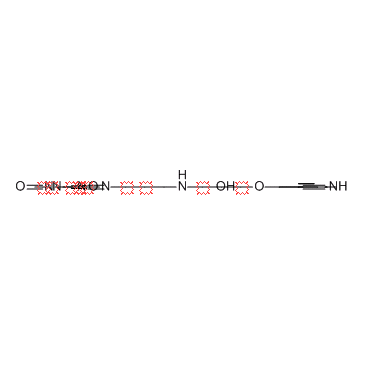| Description |
Terbogrel is an orally available thromboxane A2 receptor antagonist and a thromboxane A2 synthase inhibitor, with both IC50s of about 10 nM.
|
| Related Catalog |
|
| Target |
IC50: apr 10 nM (thromboxane A2 receptor), appr 10 nM (thromboxane A2 synthase)[1]
|
| In Vitro |
Pretreatment of platelets with terbogrel 1 μM completely inhibits thrombin-induced thromboxane A2 formation (2±1 ng/mL) but does not result in any inhibition of platelet aggregation. Terbogrel (1 μM) completely inhibits U46619-induced platelet aggregation, and the IC50 value is 10 nM. Terbogrel inhibits both platelet aggregation and thromboxane A2 formation with an IC50 of about 10 nM[1]. Terbogrel inhibits the thromboxane A2 synthase in human gel-filtered platelets with an IC50 value of 4.0 ± 0.5 nM. Terbogrel blocks the thromboxane A2/endoperoxide receptor on washed human platelets with an IC50 of 11 ± 6 nM (n = 2) and with an IC50 of 38 ± 1 nM (n = 15) in platelet-rich plasma. Terbogrel inhibits the collagen-induced platelet aggregation in human platelet-rich plasma and whole blood with an IC50 of 310 ± 18 nM (n = 8) and 52 ± 20 nM (n = 6), respectively[2].
|
| In Vivo |
Terbogrel (0.1−3.0 mg/kg) demonstrates an impressive antithrombotic efficacy in rabbits. Terbogrel (10 mg/kg, po) is rapidly and well (90%) absorbed with a systemic availability of about 30% in rats[2].
|
| References |
[1]. Muck S, et al. Effects of terbogrel on platelet function and prostaglandin endoperoxide transfer. Eur J Pharmacol. 1998 Feb 26;344(1):45-8. [2]. Soyka R, et al. Guanidine derivatives as combined thromboxane A2 receptor antagonists and synthase inhibitors. J Med Chem. 1999 Apr 8;42(7):1235-49.
|
